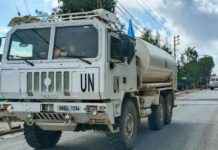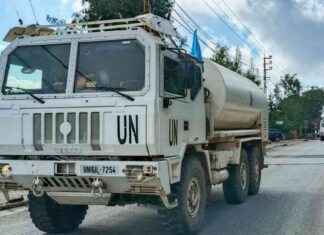“I hope that in the coming days we will not lose this momentum and that we can conclude the agreement”, declared Josep Borrell at the end of an informal meeting of European Ministers of Foreign Affairs in Prague.
“It is clear that there is common ground, that we have an agreement which takes into account, I think, the concerns of each one”, he assured.
The European Union presented on August 8 what it called a final text to restore the historic 2015 agreement, which had been buried by former US President Donald Trump.
Joe Biden promised himself to restore the agreement, believing that it was the best way to limit the Iranian nuclear program, and that the American withdrawal had only encouraged Tehran to accelerate its project.
Under the new proposal, Iran would receive sanctions relief and could once again sell its oil in exchange for tight restrictions on its nuclear program.
Iran and the United States responded by proposing a series of changes.
– Biden and Lapid –
Sign of the involvement of the American president, he spoke on Wednesday with the head of the Israeli government, Yaïr Lapid.
The latter struggles to convince the West that renewing this agreement known by the acronym “JCPOA” would be a serious mistake, which would allow Iran to replenish its coffers thanks to oil sales, and thus to finance its destabilizing activities in the Middle -East.
The two leaders “discussed at length the negotiations over a nuclear deal”, their “commitment to halting Iran’s progress towards acquiring nuclear weapons” and Iranian regional influence, according to a statement from Yair Lapid’s office.
In this regard, the Prime Minister of the Jewish state “underlined the importance of the strikes ordered by President Biden in Syria”.
The US military announced last Thursday that it had carried out an operation in eastern Syria aimed at deterring armed groups backed by Iran from continuing to attack its bases in the region.
During the interview, Joe Biden, who had been warmly received in Israel in July, “underlined the commitment of the United States never to allow Iran to acquire nuclear weapons.”
Washington assures that Iran has made crucial concessions, and in particular has abandoned its request to block certain inspections by the IAEA, the International Atomic Energy Agency.
However, this subject of inspections remains highly sensitive on both sides.
Tehran thus recently requested the closing of an investigation by the IAEA concerning traces of enriched uranium found on three undeclared sites, which the head of the Agency, Rafael Grossi, refuses.
The UN nuclear policeman had deplored the lack of “credible” answers from Tehran concerning these traces.








